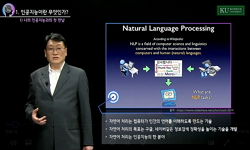Thermophysical properties of helium are significant in practical applications. However, the values of properties vary under different circumstances, which may have bad impacts on practical productions and applications. In our study, computational mo...
http://chineseinput.net/에서 pinyin(병음)방식으로 중국어를 변환할 수 있습니다.
변환된 중국어를 복사하여 사용하시면 됩니다.
- 中文 을 입력하시려면 zhongwen을 입력하시고 space를누르시면됩니다.
- 北京 을 입력하시려면 beijing을 입력하시고 space를 누르시면 됩니다.

Prediction of Thermophysical Properties of Helium Using Linear Prediction and Artificial Neural Networks
한글로보기https://www.riss.kr/link?id=A100237361
- 저자
- 발행기관
- 학술지명
- 권호사항
-
발행연도
2014
-
작성언어
English
- 주제어
-
KDC
028
-
등재정보
SCOPUS
-
자료형태
학술저널
-
수록면
277-286(10쪽)
- 제공처
-
중단사유
※ eArticle의 서비스 중단으로 원문이 제공되지 않습니다.
-
0
상세조회 -
0
다운로드
부가정보
다국어 초록 (Multilingual Abstract)
Thermophysical properties of helium are significant in practical applications. However, the values of properties vary under different circumstances, which may have bad impacts on practical productions and applications. In our study, computational models like Linear Prediction and Artificial Neural Networks (ANNs) are applied to predict the thermophysical properties of the chemical substances. By analyzing 50 data groups using Linear Prediction, General Regression Neural Network (GRNN) and Multilayer Feedforward Neural Network (MLFN) methods, 9 models were successfully established to predict the thermophysical properties of helium, including density, energy, enthalpy, entropy, isochoric heat capacity, isobaric heat capacity, viscosity, thermal conductivity and dielectric constant. Within permissible error range (30% tolerance), our models were proved to be robust and accurate which indicates that ANN models can be used to predict the thermophysical properties of helium.
목차 (Table of Contents)
- Abstract
- 1. Introduction
- 2. Artificial Neural Networks
- 3. Selection of Variables
- 4. Training Process of Neural Networks
- Abstract
- 1. Introduction
- 2. Artificial Neural Networks
- 3. Selection of Variables
- 4. Training Process of Neural Networks
- 5. Results and Discussion
- References
동일학술지(권/호) 다른 논문
-
Robust Adaptive Control of Fuzzy Nonlinear System via Variable Structure Control Approach
- 보안공학연구지원센터
- X. Z. Zhang
- 2014
- SCOPUS
-
Management Strategy Based on Genetic Algorithm Optimization for PHEV
- 보안공학연구지원센터
- Zhang Yu,Meng Dawei,Zhou Meilan,Lu Dengke
- 2014
- SCOPUS
-
Enhanced Identity Authentication and Context Privacy Preservation in Ubiquitous Healthcare System
- 보안공학연구지원센터
- Hyunsung Kim
- 2014
- SCOPUS
-
- 보안공학연구지원센터
- Partha Sarati Das,Kyeong-Hwa Kim
- 2014
- SCOPUS





 eArticle
eArticle


